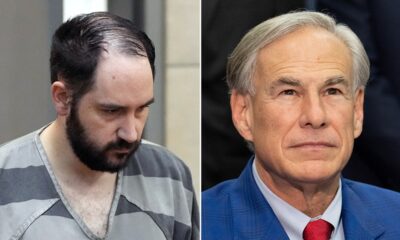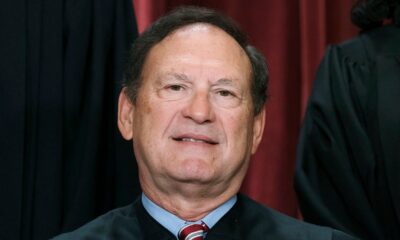Lifestyle
My 17-year-old Honda, Broomhilda, met a tragic end. Why do we grieve when our cars die?
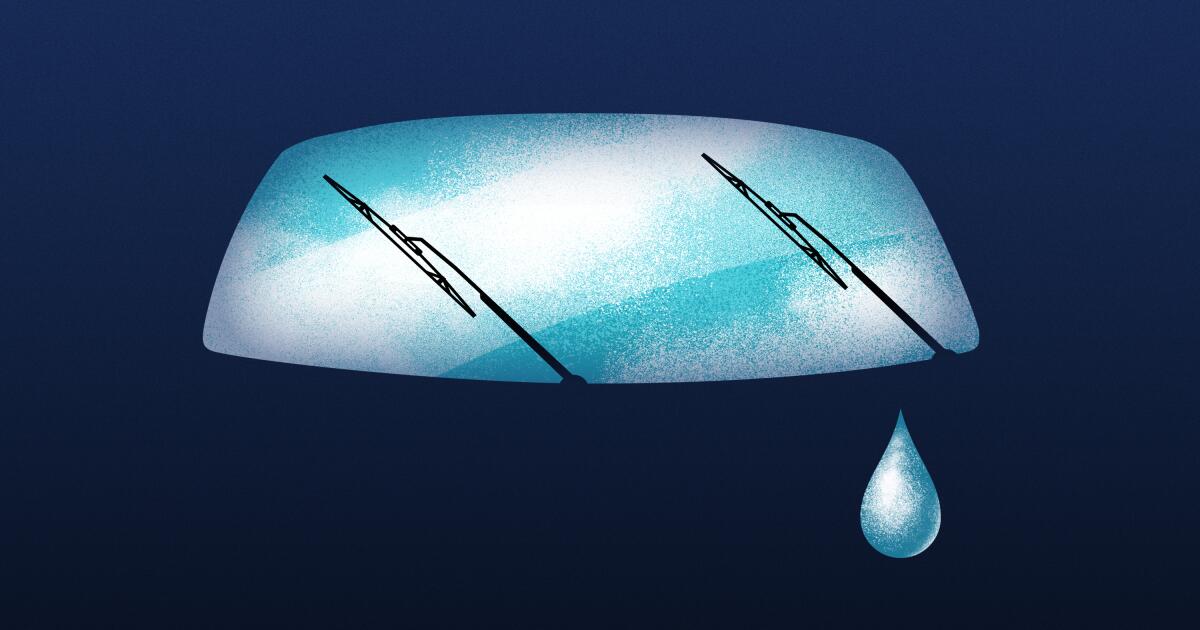
Our 17-year-old Honda CR-V (affectionately dubbed “Broomhilda”) met her tragic, premature demise last summer when a deer bolted out of neighboring woods, straight into her hood. My husband, who miraculously emerged unscathed, managed to drive it home and repair the dent. Unfortunately, unknown to us, radiator fluid slowly leaked into her engine until, months later, we pulled into our driveway to find our kids frantic as plumes of smoke rose out of her hood, every single alert on her dash alight like a Christmas tree. She was toast — and she smelled like it. Watching a tow truck pull her out of our driveway one last time, I felt an unexpected residue of sadness that lingered for longer than I expected.
I’m hardly the only person to grieve a little when my car dies. I’m also not the only person who felt compelled to give my car a name. George Slavich, director of UCLA’s Laboratory for Stress Assessment and Research, says we sometimes can’t help but attribute personality characteristics to the objects we love. “People tend to anthropomorphize certain objects like cars, even giving them names, because our brains are hard-wired to see personality even when it’s not possible to exist,” he says.
So why do we grieve our cars? If you live in L.A., your car isn’t just a means to get from A to B and back again — it’s a small mobile home. You spend so much time in your car that it becomes a transient residence where significant memories are made and milestones are met and, like our homes, we can get emotionally attached to the places where these things occur. For nearly two decades, Broomhilda was that mobile home for our family. We brought our now-teenage child home from the hospital in her. We used her to drop our oldest kid off at college. She carried us in sickness and health, on countless family road trips and terrifying jaunts to the emergency room. We stuffed her with furniture, balloons, cake, pets and more children than legally allowed to and from birthday parties. Her gray cloth backseat was covered with dog hair and a few remaining telltale stains of the regurgitated chocolate milk of a carsick toddler. As she was towed out of our driveway beyond sight, her scraps destined to resurrect other vehicles, I was confident she was dragged off to her metallic grave with a few errant Airpods, a good amount of loose change, and possibly a few baby teeth still lodged beyond reach in her cushions.
Even with the mounting malfunctions of age, Broomhilda housed myriad mementos and sparked zillions of mundane memories — the kind we make daily but take for granted. “Memories are inextricably linked to the context in which they are made, and for many people growing up in the United States, that context likely involved a memorable car or two,” Slavich explains. Because teenage brains are hot-wired (see what I did there?) to form social memories, important social experiences like a first date, first kiss or first joyride might link back to the car you drove or rode in at that time in your life. “When these types of life events occur, your brain encodes not just the circumstances of the event itself, but also the smells, tastes and contextual features of the environment. So, the cars in which our lives unfold become an inherent part of our personal story and history,” he says.
In a busy commuter city like Los Angeles, your car is one of the few places where you have complete control over your environment. Says Slavich: “Amongst all the hustle and bustle of the city, you can roll up the windows, set the temperature exactly how you like it, and play relaxing meditation music or, if you prefer, put on your favorite Jay-Z or Britney song and sing as loud as you want.” Also, whether you’re cognizant of it or not, your car is a space where you entertain. “Every time my friends came into my car they had an experience, whether it was through music or the adventure,” says Monica O’Neal, a Boston-based clinical psychologist and relationship expert.
Our cars also house various aspects of our interior and exterior lives. For one, they’re symbolic of our sense of self and autonomy. “Your car represents you,” says O’Neal. “In some ways, they hold such a sense of our identity, and some narrative of our life and our struggle.” On a surface level, for better or worse, you might be judged by the kind of car you drive, which is something of an L.A. epidemic. Says O’Neal: “Cars are kind of almost like your clothing. When people see you getting in and out of a car, you’re going to have an immediate sense of their identity.” She also says our cars are one of the few private spaces in our lives. “If you’re commuting, you’re spending a bunch of your life in your car. That might be the place where you have privacy, and time alone with your thoughts.” Losing a car might also mean losing a sacred space you might rely on to process your feelings.
The most important thing to know if you’re grieving for your car is you aren’t missing some random object — your car was a sacred space that served as a vessel for the memories you made in it. Any feelings of grief are perfectly normal, are common and, in due time, will pass. It’s been months since Broomhilda went to the scrap heap and I’m still car shopping. Naturally, I’ve been most attracted to CR-Vs. They won’t be Broomhilda, but I know they’ll fit us perfectly.

Lifestyle
Dabney Coleman, who starred in '9 to 5' and 'Tootsie', dies at 92

Dabney Coleman, who starred in “9 to 5” and “Tootsie,” appears in Los Angeles on Nov. 14, 1988. The actor died Thursday at his home in Santa Monica, Calif.
Nick Ut/AP
hide caption
toggle caption
Nick Ut/AP

Dabney Coleman, who starred in “9 to 5” and “Tootsie,” appears in Los Angeles on Nov. 14, 1988. The actor died Thursday at his home in Santa Monica, Calif.
Nick Ut/AP
NEW YORK — Dabney Coleman, the mustachioed character actor who specialized in smarmy villains like the chauvinist boss in “9 to 5” and the nasty TV director in “Tootsie,” has died. He was 92.
Coleman died Thursday at his home in Santa Monica, his daughter, Quincy Coleman, said in a statement to The Associated Press. She said he “took his last earthly breath peacefully and exquisitely.”
“The great Dabney Coleman literally created, or defined, really — in a uniquely singular way — an archetype as a character actor. He was so good at what he did it’s hard to imagine movies and television of the last 40 years without him,” Ben Stiller wrote on X.
For two decades Coleman labored in movies and TV shows as a talented but largely unnoticed performer. That changed abruptly in 1976 when he was cast as the incorrigibly corrupt mayor of the hamlet of Fernwood in “Mary Hartman, Mary Hartman,” a satirical soap opera that was so over the top no network would touch it.

Producer Norman Lear finally managed to syndicate the show, which starred Louise Lasser in the title role. It quickly became a cult favorite. Coleman’s character, Mayor Merle Jeeter, was especially popular and his masterful, comic deadpan delivery did not go overlooked by film and network executives.
A six-footer with an ample black mustache, Coleman went on to make his mark in numerous popular films, including as a stressed out computer scientist in “War Games,” Tom Hanks’ father in “You’ve Got Mail” and a fire fighting official in “The Towering Inferno.”
He won a Golden Globe for “The Slap Maxwell Story” and an Emmy Award for best supporting actor in Peter Levin’s 1987 small screen legal drama “Sworn to Silence.” Some of his recent credits include “Ray Donovan” and a recurring role on “Boardwalk Empire,” for which he won two Screen Actors Guild Awards.
In the groundbreaking 1980 hit “9 to 5,” he was the “sexist, egotistical, lying, hypocritical bigot” boss who tormented his unappreciated female underlings — Jane Fonda, Lily Tomlin and Dolly Parton — until they turned the tables on him.
In 1981, he was Fonda’s caring, well-mannered boyfriend, who asks her father (played by her real-life father, Henry Fonda) if he can sleep with her during a visit to her parents’ vacation home in “On Golden Pond.”
Opposite Dustin Hoffman in “Tootsie,” he was the obnoxious director of a daytime soap opera that Hoffman’s character joins by pretending to be a woman. Among Coleman’s other films were “North Dallas Forty,” “Cloak and Dagger,” “Dragnet,” “Meet the Applegates,” “Inspector Gadget” and “Stuart Little.” He reunited with Hoffman as a land developer in Brad Silberling’s “Moonlight Mile” with Jake Gyllenhaal.
Coleman’s obnoxious characters didn’t translate quite as well on television, where he starred in a handful of network comedies. Although some became cult favorites, only one lasted longer than two seasons, and some critics questioned whether a series starring a lead character with absolutely no redeeming qualities could attract a mass audience.
“Buffalo Bill” (1983-84) was a good example. It starred Coleman as “Buffalo Bill” Bittinger, the smarmy, arrogant, dimwitted daytime talk show host who, unhappy at being relegated to the small-time market of Buffalo, New York, takes it out on everyone around him. Although smartly written and featuring a fine ensemble cast, it lasted only two seasons.
Another was 1987’s “The Slap Maxwell Story,” in which Coleman was a failed small-town sportswriter trying to save a faltering marriage while wooing a beautiful young reporter on the side.
Other failed attempts to find a mass TV audience included “Apple Pie,” “Drexell’s Class” (in which he played an inside trader) and “Madman of the People,” another newspaper show in which he clashed this time with his younger boss, who was also his daughter.
He fared better in a co-starring role in “The Guardian” (2001-2004), which had him playing the father of a crooked lawyer. And he enjoyed the voice role as Principal Prickly on the Disney animated series “Recess” from 1997-2003.
Underneath all that bravura was a reserved man. Coleman insisted he was really quite shy. “I’ve been shy all my life. Maybe it stems from being the last of four children, all of them very handsome, including a brother who was Tyrone Power-handsome. Maybe it’s because my father died when I was 4,” he told The Associated Press in 1984. “I was extremely small, just a little guy who was there, the kid who created no trouble. I was attracted to fantasy, and I created games for myself.”
As he aged, he also began to put his mark on pompous authority figures, notably in 1998’s “My Date With the President’s Daughter,” in which he was not only an egotistical, self-absorbed president of the United States, but also a clueless father to a teenager girl.
Dabney Coleman — his real name — was born in 1932 in Austin, Texas After two years at the Virginia Military Academy, two at the University of Texas and two in the Army, he was a 26-year-old law student when he met another Austin native, Zachry Scott, who starred in “Mildred Pierce” and other films.
“He was the most dynamic person I’ve ever met. He convinced me I should become an actor, and I literally left the next day to study in New York. He didn’t think that was too wise, but I made my decision,” Coleman told The AP in 1984.
Early credits included such TV shows as “Ben Casey,” “Dr Kildare,” “The Outer Limits,” “Bonanza,” “The Mod Squad” and the film “The Towering Inferno.” He appeared on Broadway in 1961 in “A Call on Kuprin.” He played Kevin Costner’s father on “Yellowstone.”
Twice divorced, Coleman is survived by four children, Meghan, Kelly, Randy and Quincy, and the grandchildren Hale and Gabe Torrance, Luie Freundl and Kai and Coleman Biancaniello.
“My father crafted his time here on earth with a curious mind, a generous heart, and a soul on fire with passion, desire and humor that tickled the funny bone of humanity,” Quincy Coleman wrote in his honor.
Lifestyle
Dean McDermott Claps Back at Trolls After Tori Spelling Supports Relationship
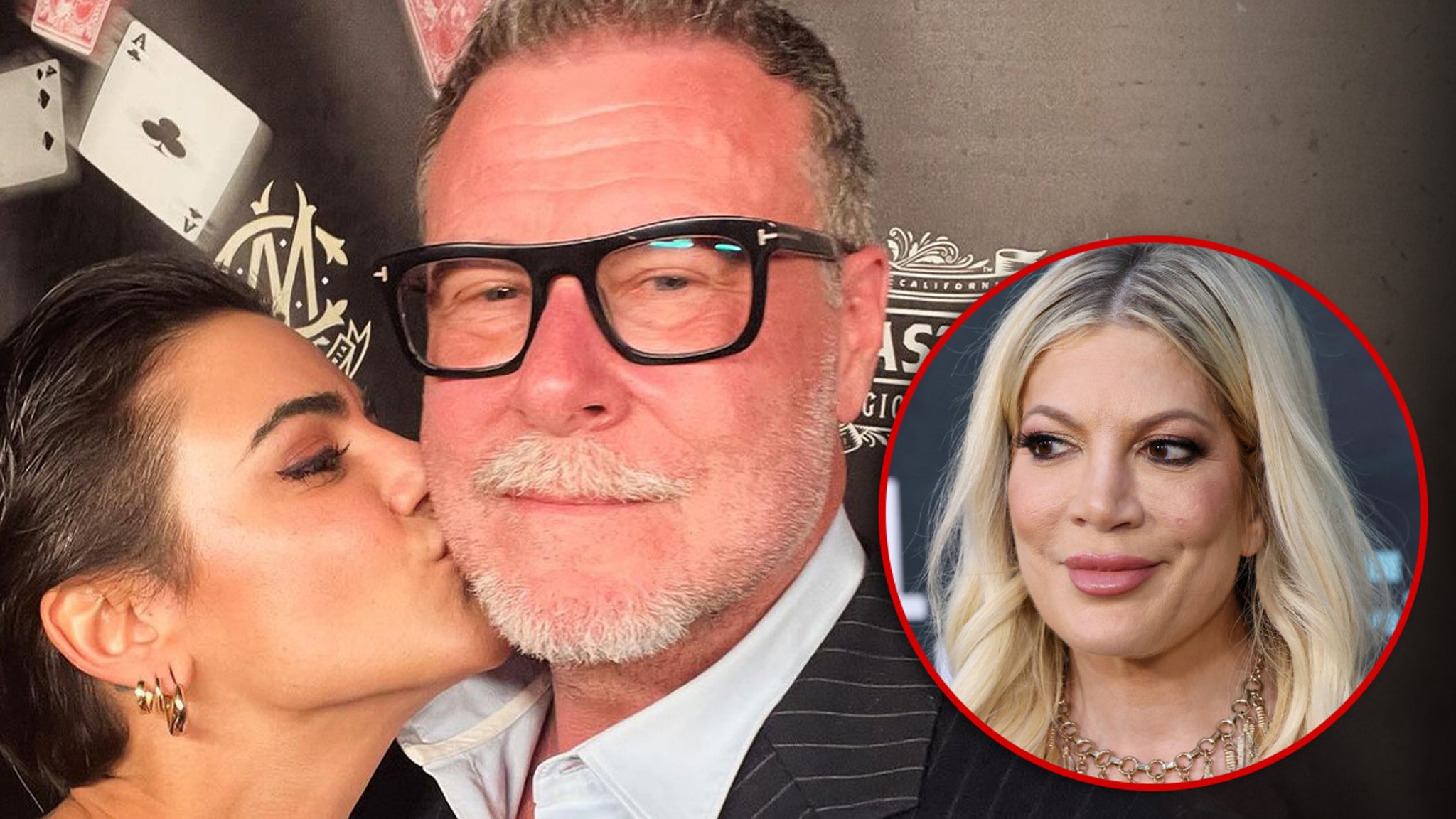
Dean McDermott‘s firing off at trolls shocked at Tori Spelling‘s acceptance of his new girlfriend … this despite seemingly obvious tension between the exes.
The actor jumped into the replies of a post featuring his new girlfriend, Lily Calo, to defend himself and his estranged wife after several fans said they couldn’t believe Tori liked the post … essentially showing her support.
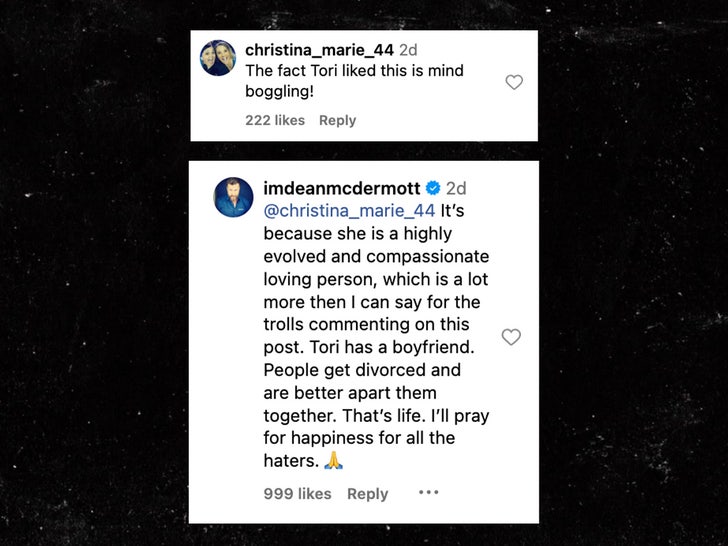
In response to one comment which seemed to really upset him, Dean wrote, “It’s because she is a highly evolved and compassionate loving person, which is a lot more [than] I can say for the trolls commenting on this post.”
A serious burn on the commenter … followed by McDermott’s view some people just work better together when they’re not married — and, adding TS has her own boyfriend too, so they’re both moving on.
It’s a pretty fiery roast from the father-of-five … and, it lifts the lid on a relationship that’s been hella strained recently.
Remember … the two announced the end of their marriage last summer — and Tori and their kids were bouncing between motel rooms and family friends’ homes because she didn’t seem to want to be near Dean.
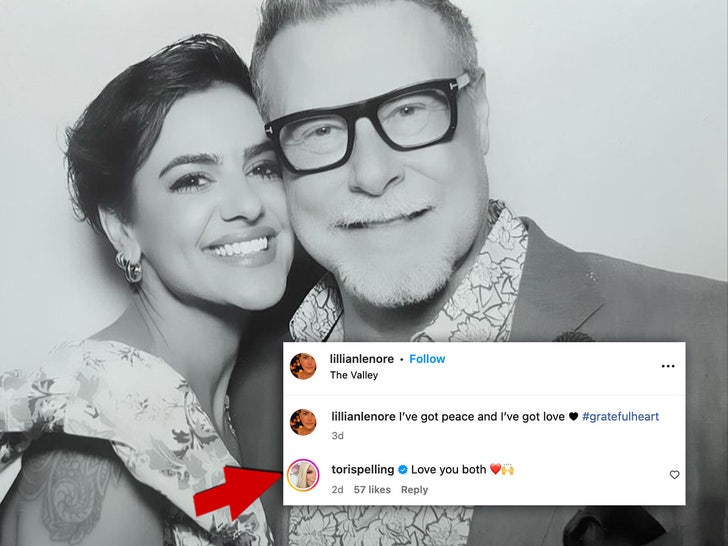
BTW … Tori’s dropped other sweet comments too like one where she says she loves Dean and Lily. Talk about a 180!
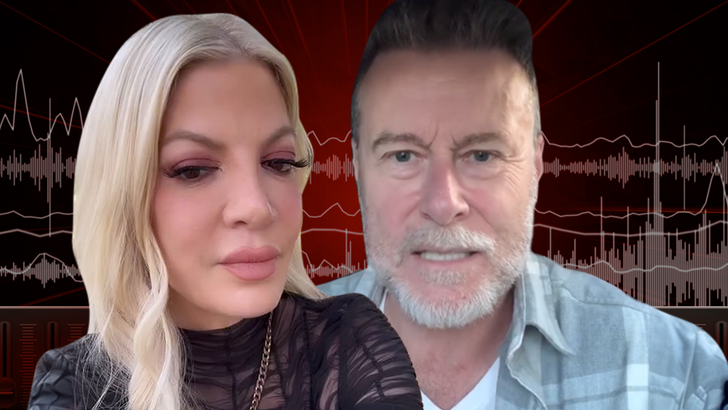
3/31/24
misSPELLING
Of course, Tori filed for divorce from Dean officially at the end of last month … and, broke the news to him live on her podcast days later. There seemed like a lot of tension between the two at the time — but, now it sounds like they’ve moved on.
TMZ Studios

Pretty big change for the former couple … we’ll have to wait and see if Tori addresses it on her podcast.
Lifestyle
'Wait Wait' for May 18, 2024: With Not My Job guest Maya Hawke

This week’s show was recorded at the Studebaker Theater in Chicago, with guest host Alzo Slade, judge and scorekeeper Bill Kurtis, Not My Job guest Maya Hawke and panelists Negin Farsad, Adam Burke and Faith Salie. Click the audio link above to hear the whole show.
Jamie McCarthy/Getty Images

Jamie McCarthy/Getty Images
Who’s Bill This Time
Joe Vs The Volcano; Mr. Cheese’s Last Tour; Interoffice Romance
Panel Questions
A New Irish Goodbye
Bluff The Listener
Our panelists tell three stories of well-meaning gifts that didn’t quite work, only one of which is true.
Not My Job: We quiz singer and actor Maya Hawke on birdwatchers
Musician and actor Maya Hawke had a breakout year 2019, when she landed the role of Robin in Stranger Things and released her first two singles. She’s gonna do it all again in 2024, with a new album called Chaos Angel, a role in Pixar’s Inside Out 2, and a new movie called Wildcat, which just so happens to be directed by her dad, Ethan.
Panel Questions
The Quest For a New Word For Quest; A Graduation Situation
Limericks
Bill Kurtis reads three news-related limericks: Another Reason To Go Outside; How To Get Some Free Bubbly; The Perfect Conversation Partner
Lightning Fill In The Blank
All the news we couldn’t fit anywhere else
Predictions
Our panelists predict, now that they’re retiring their animatronic band, what’s next for Chuck E. Cheese?
-

 Politics1 week ago
Politics1 week agoOhio AG defends letter warning 'woke' masked anti-Israel protesters they face prison time: 'We have a society'
-

 Finance1 week ago
Finance1 week agoSpring Finance Forum 2024: CRE Financiers Eye Signs of Recovery
-

 World1 week ago
World1 week agoIndia Lok Sabha election 2024 Phase 4: Who votes and what’s at stake?
-

 Politics1 week ago
Politics1 week agoBiden’s decision to pull Israel weapons shipment kept quiet until after Holocaust remembrance address: report
-

 News1 week ago
News1 week agoThe Major Supreme Court Cases of 2024
-

 News1 week ago
News1 week agoTornadoes tear through the southeastern U.S. as storms leave 3 dead
-

 World1 week ago
World1 week agoA look at Chinese investment within Hungary
-

 Politics1 week ago
Politics1 week agoTales from the trail: The blue states Trump eyes to turn red in November
